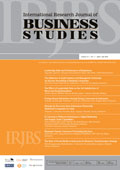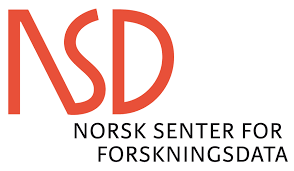Article Metrics |
|
|
Succession Intention in Continuing Family Business in Indonesia during the Covid-19 Pandemic
Abstract
The Covid-19 pandemic disrupted many industries and created a different reality of function in terms of several aspects, including family business and succession. This paper discusses how family business successor intentions regarding succeeding the family business in the near future have been affected by the pandemic. The subjects of our study are senior undergraduate business students that could potentially become successors in their family business. Our model is based on the Intention Model from the Theory of Perceived Behaviors, modified from our previous study with Intention to succeeding family business as the dependent variable. Data of 203 valid respondents was collected through quantitative survey and analyzed using a multiple linear regression model. The results of our study show that, during the pandemic, the intention of the heirs of the family business in succeeding his/her family business will be determined by the successor’s own attitude in succeeding family business, campus education, familiness, and resiliency of family business situation in facing the pandemic.
Full Text:
References
Ajzen, I. (2002). Novel digital powder micromixer. Constructing a TPB Questionnaire: Conceptual and Methodological Considerations.
Ajzen, Icek. (2020). The theory of planned behavior: Frequently asked questions. Human Behavior and Emerging Technologies, 2(4), 314–324. https://doi.org/10.1002/HBE2.195
Allison, T. H., McKenny, A. F., & Short, J. C. (2014). Integrating Time Into Family Business Research: Using Random Coefficient Modeling to Examine Temporal Influences on Family Firm Ambidexterity. Family Business Review, 27(1), 20–34. https://doi.org/10.1177/0894486513494782
Alonso-Dos-Santos, M., & Llanos-Contreras, O. (2019). Family business performance in a post-disaster scenario: The influence of socioemotional wealth importance and entrepreneurial orientation. Journal of Business Research, 101, 492–498. https://doi.org/10.1016/j.jbusres.2018.12.057
Arijs, D., Botero, I. C., Michiels, A., & Molly, V. (2018). Family business employer brand: Understanding applicants’ perceptions and their job pursuit intentions with samples from the US and Belgium. Journal of Family Business Strategy, 9(3), 180–191. https://doi.org/10.1016/j.jfbs.2018.08.005
Badan Pusat Statistik. (2019). Berita resmi statistik. Bps.Go.Id, 27, 1–52. https://papua.bps.go.id/pressrelease/2018/05/07/336/indeks-pembangunan-manusia-provinsi-papua-tahun-2017.html
Bae, T. J., Qian, S., Miao, C., & Fiet, J. O. (2014). The Relationship Between Entrepreneurship Education and Entrepreneurial Intentions: A Meta-Analytic Review. Entrepreneurship: Theory and Practice, 38(2), 217–254. https://doi.org/10.1111/etap.12095
Basco, R., Calabrò, A., & Campopiano, G. (2019). Transgenerational entrepreneurship around the world: Implications for family business research and practice. Journal of Family Business Strategy, 10(4). https://doi.org/10.1016/j.jfbs.2018.03.004
Bozer, G., Levin, L., & Santora, J. C. (2017). Succession in family business: multi-source perspectives. Journal of Small Business and Enterprise Development, 24(4), 753–774. https://doi.org/10.1108/JSBED-10-2016-0163
Bressan, A., Duarte Alonso, A., & Kok, S. K. (2021). Confronting the unprecedented: micro and small businesses in the age of COVID-19. International Journal of Entrepreneurial Behavior & Research, 27(3), 799–820. https://doi.org/10.1108/IJEBR-09-2020-0602
Brinkerink, J., Rondi, E., Benedetti, C., & Arzubiaga, U. (2020). Family business or business family? Organizational identity elasticity and strategic responses to disruptive innovation. Journal of Family Business Strategy, 100360. https://doi.org/10.1016/j.jfbs.2020.100360
Calabrò, A., Frank, H., Minichilli, A., & Suess-Reyes, J. (2021). Business families in times of crises: The backbone of family firm resilience and continuity. Journal of Family Business Strategy, 12(2). https://doi.org/10.1016/J.JFBS.2021.100442
Carr, J. C., & Sequeira, J. M. (2007). Prior family business exposure as intergenerational influence and entrepreneurial intent: A Theory of Planned Behavior approach. Journal of Business Research, 60(10), 1090–1098. https://doi.org/10.1016/j.jbusres.2006.12.016
Collins, L., Seaman, C., Graham, S., & Stepek, M. (2013). The future of family business education in UK business schools. Education and Training, 55(4), 445–460. https://doi.org/10.1108/00400911311326063
Constantinidis, C., & Nelson, T. (2009). Integrating Succession and Gender Issues from the Perspective of the Daughter of Family Enterprise : A Cross-National Investigation. 14(November), 43–54. https://doi.org/10.7202/039138ar
Danes, S. M., Haberman, H. R., & McTavish, D. (2005). Gendered discourse about family business. In Family Relations (Vol. 54, Issue 1, pp. 116–130). https://doi.org/10.1111/j.0197-6664.2005.00010.x
Debicki, B. J., Kellermanns, F. W., Chrisman, J. J., Pearson, A. W., & Spencer, B. A. (2016). Development of a socioemotional wealth importance (SEWi) scale for family firm research. Journal of Family Business Strategy, 7(1), 47–57. https://doi.org/10.1016/j.jfbs.2016.01.002
Debicki, B. J., Ramírez-Solís, E. R., Baños-Monroy, V. I., & Gutiérrez-Patrón, L. M. (2020). The impact of strategic focus on relational capital: A comparative study of family and non-family firms. Journal of Business Research. https://doi.org/10.1016/j.jbusres.2020.07.016
Donthu, N., & Gustafsson, A. (2020). Effects of COVID-19 on business and research. In Journal of Business Research. https://doi.org/10.1016/j.jbusres.2020.06.008
Duh, M. (2014). Family business succession as knowledge creation process. Kybernetes, 43(5), 699–714. https://doi.org/10.1108/K-08-2013-0172
Duran-Encalada, J., Werner-Masters, K., & Paucar-Caceres, A. (2021). Factors Affecting Women’s Intention to Lead Family Businesses in Mexico. Social Sciences 2021, Vol. 10, Page 251, 10(7), 251. https://doi.org/10.3390/SOCSCI10070251
Ferreira, J. J., Fernandes, C. I., Schiavone, F., & Mahto, R. V. (2021). Sustainability in family business – A bibliometric study and a research agenda. Technological Forecasting and Social Change, 173, 121077. https://doi.org/10.1016/J.TECHFORE.2021.121077
Filser, M., Kraus, S., & Märk, S. (2013). Psychological aspects of succession in family business management. Management Research Review, 36(3), 256–277. https://doi.org/10.1108/01409171311306409
Forcadell, F. J., Úbeda, F., & Zúñiga-Vicente, J. Á. (2018). Initial resource heterogeneity differences between family and non-family firms: Implications for resource acquisition and resource generation. Long Range Planning, 51(5), 693–719. https://doi.org/10.1016/j.lrp.2017.11.003
George, J. F. (2004). The theory of planned behavior and Internet purchasing. Internet Research, 14(3), 198–212. https://doi.org/10.1108/10662240410542634
Gibson, L. P., Magnan, R. E., Kramer, E. B., & Bryan, A. D. (2021). Theory of Planned Behavior Analysis of Social Distancing During the COVID-19 Pandemic: Focusing on the Intention–Behavior Gap. Annals of Behavioral Medicine. https://doi.org/10.1093/ABM/KAAB041
Guerrero, M., Urbano, D., & Gajón, E. (2020). Entrepreneurial university ecosystems and graduates’ career patterns: do entrepreneurship education programmes and university business incubators matter? Journal of Management Development, 39(5), 753–775. https://doi.org/10.1108/JMD-10-2019-0439
Habbershon, T. G., & Williams, M. L. (1999). A resource-based framework for assessing the strategic advantages of family firms. Family Business Review, 12(1), 1–25. https://doi.org/10.1111/j.1741-6248.1999.00001.x
Habbershon, T. G., Williams, M., & MacMillan, I. C. (2003). A unified systems perspective of family firm performance. Journal of Business Venturing, 18(4), 451–465. https://doi.org/10.1016/S0883-9026(03)00053-3
Hahn, D., Spitzley, D. I., Brumana, M., Ruzzene, A., Bechthold, L., Prügl, R., & Minola, T. (2021). Founding or succeeding? Exploring how family embeddedness shapes the entrepreneurial intentions of the next generation. Technological Forecasting and Social Change, 173, 121182. https://doi.org/10.1016/J.TECHFORE.2021.121182
Hari Magnadi, R., & Surya Perdhana, M. (2021). Characteristics of family business succession in Batik industry. Journal of Management Information and Decision Sciences, 24(2), 1–10.
Hidayati, A., Hermawan, A., Soehadi, A. W., & Hartoyo. (2020). Intra-family succession insights: the presence of millennial cohort successors. Journal of Family Business Management. https://doi.org/10.1108/JFBM-07-2019-0052
Ip, B., & Jacobs, G. (2006). Business succession planning: A review of the evidence. In Journal of Small Business and Enterprise Development (Vol. 13, Issue 3, pp. 326–350). https://doi.org/10.1108/14626000610680235
Jena, R. K. (2020). Measuring the impact of business management Student’s attitude towards entrepreneurship education on entrepreneurial intention: A case study. Computers in Human Behavior, 107, 106275. https://doi.org/10.1016/j.chb.2020.106275
Karimi, S., & Biemans, H. J. A. (2017). The Role of Entrepreneurship Education in Developing Students ’ Entrepreneurial Intentions The Role of Entrepreneurship Education in Developing Students ’ Entrepreneurial Intentions Saeid Karimi *, Harm J . A . Biemans , Thomas Lans , Martin Mulder , Moha. September 2012. https://doi.org/10.2139/ssrn.2152944
Kets, M. F. R. (2015). The Dynamics of Family Controlled Firms. Reflections on Groups and Organizations, 173–189. https://doi.org/10.1002/9781119206484.ch8
Kraus, S, Clauss, T., Breier, M., Gast, J., Zardini, A., & ... (2020). The economics of COVID-19: initial empirical evidence on how family firms in five European countries cope with the corona crisis. International Journal of …. https://doi.org/10.1108/IJEBR-04-2020-0214
Kraus, Sascha, Clauss, T., Breier, M., Gast, J., Zardini, A., & Tiberius, V. (2020). The economics of COVID-19: initial empirical evidence on how family firms in five European countries cope with the corona crisis. International Journal of Entrepreneurial Behaviour and Research, 26(5), 1067–1092. https://doi.org/10.1108/IJEBR-04-2020-0214
Kusumawardani, K. A. (2020). Family Comes First : An Investigation on Entrepreneurial Intention among Chinese Indonesian Gen Z. International Journal of Family Business Practices, 3(1), 39–54.
Le Breton-Miller, I., & Miller, D. (2021). Family businesses under COVID-19: Inspiring models – Sometimes. Journal of Family Business Strategy, xxxx, 100452. https://doi.org/10.1016/j.jfbs.2021.100452
Letonja, M., & Duh, M. (2016). Knowledge transfer in family businesses and its effects on the innovativeness of the next family generation. Knowledge Management Research and Practice, 14(2). https://doi.org/10.1057/kmrp.2015.25
Liu, F. (2020). Family Business Succession Roadblock Model Based on Fuzzy Linguistic Preference Relations. The North American Journal of Economics and Finance, 101255. https://doi.org/10.1016/j.najef.2020.101255
Maresch, D., Harms, R., Kailer, N., & Wimmer-Wurm, B. (2016). The impact of entrepreneurship education on the entrepreneurial intention of students in science and engineering versus business studies university programs. Technological Forecasting and Social Change, 104, 172–179. https://doi.org/10.1016/j.techfore.2015.11.006
Massis, A. De, & Rondi, E. (2020). COVID-19 and the future of family business research. In Journal of Management Studies. bia.unibz.it.
Migliori, S., De Massis, A., Maturo, F., & Paolone, F. (2020). How does family management affect innovation investment propensity? The key role of innovation impulses. Journal of Business Research. https://doi.org/10.1016/j.jbusres.2020.01.039
Mokhber, M., Gi Gi, T., Abdul Rasid, S. Z., Vakilbashi, A., Mohd Zamil, N., & Woon Seng, Y. (2017). Succession planning and family business performance in SMEs. Journal of Management Development, 36(3), 330–347. https://doi.org/10.1108/JMD-12-2015-0171
Morris, M. H., Williams, R. W., & Nel, D. (1996). Factors influencing family business successioMorris, M. H., Williams, R. W., & Nel, D. (1996). Factors influencing family business succession. International Journal of Entrepreneurial Behaviour & Research, 2(3), 68–81. https://doi.org/10.1108/135525596101. International Journal of Entrepreneurial Behaviour & Research, 2(3), 68–81.
Morris, M. H., Williams, R. W., Nel, D., Morris, M. H., & Williams, R. W. (1996). Business Succession. International Journal of Entrepreneurial Behavior & Research, 2(3), 68–81.
Nguyen, M.-H., Nguyen, H. T. T., Le, T.-T., Luong, A.-P., & Vuong, Q.-H. (2021). Gender issues in family business research: A bibliometric scoping review. Journal of Asian Business and Economic Studies, ahead-of-print(ahead-of-print). https://doi.org/10.1108/JABES-01-2021-0014
OH, R. S. W., & Ferijani, A. (2021). Succession Analysis in Family Business (Case Study at PT. BJE). Journal of Management and Business Environment (JMBE), 2(2), 115–125. http://103.243.177.137/index.php/JMBE/article/view/2693
Ojo, K., Ferreira, S., Salazar, J., & Bergstrom, J. (2021). Travel Behavior in the United States Amidst COVID-19. Travel and Tourism Research Association: Advancing Tourism Research Globally. https://scholarworks.umass.edu/ttra/2021/research_papers/62
Pessotto, A. P., Costa, C., Schwinghamer, T., Colle, G., & Corte, V. F. D. (2019). Factors influencing intergenerational succession in family farm businesses in Brazil. Land Use Policy, 87, 104045. https://doi.org/10.1016/j.landusepol.2019.104045
Porfírio, J A, Felício, J. A., & Carrilho, T. (2020). Family business succession: Analysis of the drivers of success based on entrepreneurship theory. Journal of Business Research.
Porfírio, José António, Felício, J. A., & Carrilho, T. (2019). Family business succession: Analysis of the drivers of success based on entrepreneurship theory. Journal of Business Research. https://doi.org/10.1016/j.jbusres.2019.11.054
Potia, A., & Dahiya, K. (2020). Optimistic, digital, generous: COVID-19’s impact on Indonesian consumer sentiment.
Pribadi, H., & Agustiawan, S. (2021). INTENSI CALON PENERUS BISNIS KELUARGA: MEMAHAMI SUDUT PANDANG GENERASI PENERUS DALAM MELANJUTKAN BISNIS KELUARGA DI MASA DEPAN. MIX: JURNAL ILMIAH MANAJEMEN, 11(2), 185–202. https://doi.org/10.22441/mix.2021.v11i2.003
Rachmawati, E., Suliyanto, & Suroso, A. (2020). Direct and indirect effect of entrepreneurial orientation, family involvement and gender on family business performance. Journal of Family Business Management. https://doi.org/10.1108/JFBM-07-2020-0064
Ramadani, V., Hisrich, R. D., Anggadwita, G., & Alamanda, D. T. (2017). Gender and succession planning: opportunities for females to lead Indonesian family businesses. International Journal of Gender and Entrepreneurship, 9(3), 229–251. https://doi.org/10.1108/IJGE-02-2017-0012
Sathe, V., Enrione, A., & Finley, D. (2021). Avoiding the Best Practices Trap in Family Business Succession. Organizational Dynamics, 100876. https://doi.org/10.1016/J.ORGDYN.2021.100876
Sharma, P., Chrisman, J. J., & Chua, J. H. (2003). Succession Planning as Planned Behavior: Some Empirical Results. Family Business Review, 16(1), 1–15. https://doi.org/10.1111/J.1741-6248.2003.00001.X
Sharma, P., Hoy, F., Astrachan, J. H., & Koiranen, M. (2007). The practice-driven evolution of family business education. Journal of Business Research, 60(10), 1012–1021. https://doi.org/10.1016/j.jbusres.2006.12.010
Smith, C., Nordqvist, M., De Massis, A., & Miller, D. (2021). When so much is at stake: Understanding organizational brinkmanship in family business. Journal of Family Business Strategy, 100425. https://doi.org/10.1016/J.JFBS.2021.100425
Soares, G. G., Lélio da Silva Braga, V., Susana da Encarnação Marques, C., & Ratten, V. (2021). Corporate entrepreneurship education’s impact on family business sustainability: A case study in Brazil. The International Journal of Management Education, 19(1), 100424. https://doi.org/10.1016/J.IJME.2020.100424
Sondari, M. C. (2014). Is Entrepreneurship Education Really Needed?: Examining the Antecedent of Entrepreneurial Career Intention. Procedia - Social and Behavioral Sciences, 115(Iicies 2013), 44–53. https://doi.org/10.1016/j.sbspro.2014.02.414
Taber, K. S. (2018). The Use of Cronbach’s Alpha When Developing and Reporting Research Instruments in Science Education. Research in Science Education, 48(6), 1273–1296. https://doi.org/10.1007/s11165-016-9602-2
Tatoglu, E., Kula, V., & Glaister, K. W. (2008). Succession planning in family-owned businesses: Evidence from Turkey. International Small Business Journal, 26(2), 155–180. https://doi.org/10.1177/0266242607086572
Tirdasari, N. L., & Dhewanto, W. (2012). Family Business Succession in Indonesia: A Study of Hospitality Industry. Procedia - Social and Behavioral Sciences, 57, 69–74. https://doi.org/10.1016/j.sbspro.2012.09.1159
Ulker-Demirel, E., & Ciftci, G. (2020). A systematic literature review of the theory of planned behavior in tourism, leisure and hospitality management research. Journal of Hospitality and Tourism Management, 43, 209–219. https://doi.org/10.1016/j.jhtm.2020.04.003
Umans, I., Lybaert, N., Steijvers, T., & Voordeckers, W. (2018). Succession planning in family firms: family governance practices, board of directors, and emotions. Small Business Economics. https://doi.org/10.1007/s11187-018-0078-5
Venter, W. P., Kruger, S., & Urban, B. (2010). Exploring family business succession in an integrative familiness transmission of capital model: a South African study. International Journal of …. https://doi.org/10.1504/IJESB.2010.035818
Villéger, A. (2018). The relation to time in the family business and in the start-up company: A comparative study. The Journal of High Technology Management Research, 29(2), 247–255. https://doi.org/10.1016/J.HITECH.2018.09.009
Wahjono, S. I., Surabaya, U. M., Marina, A., & Fam, S. (2019). Business House as an Entrepreneurship Education Program to Boost Entrepreneurship Intention Amongst Student University in Indonesia. April 2021. https://doi.org/10.14738/assrj.69.7004
Zellweger, T., Sieger, P., & Halter, F. (2011). Should I stay or should I go? Career choice intentions of students with family business background. Journal of Business Venturing, 26(5), 521–536. https://doi.org/10.1016/j.jbusvent.2010.04.001
Zoghlami, M., Ayeb, S., & Rached, K. S. Ben. (2021). Using e-Health in the Prevention Against Covid-19: An Approach Based on the Theory of Planned Behavior. 507–517. https://doi.org/10.1007/978-3-030-78465-2_37
Zybura, J., Zybura, N., Ahrens, J. P., & Woywode, M. (2020). Innovation in the post-succession phase of family firms: Family CEO successors and leadership constellations as resources. Journal of Family Business Strategy, 100336. https://doi.org/10.1016/j.jfbs.2020.100336
Copyright (c) 2022 INTERNATIONAL RESEARCH JOURNAL OF BUSINESS STUDIES
International Research Journal of Business Studies has been covered by the following services: | ||||||||||||||||||||||||
|




















